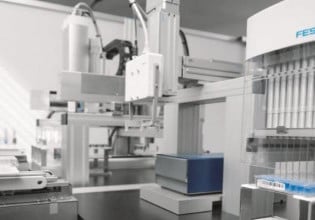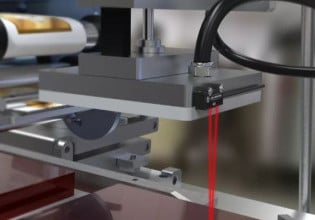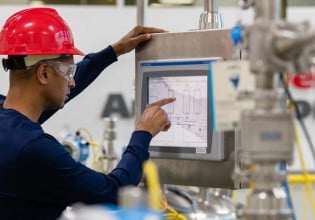DCS mark vle question for interview
- Thread starter AKS
- Start date
Scroll to continue with content
AKS,
Two years' experience--as an operator, or an instrumentation & controls tech, or an electrician?
It's my experience that people are going to ask about problems they have experienced with the Mark*--problems that may or may not actually be attributable to the Mark*. SO many problems are attributed to the Mark*--it has a LOT of wires, and LEDs that flash, and fuses and there are MANY myths and falsehoods about so many things related to the Mark* (electrohydraulic servo-valves always come immediately to mind for me; there's just so much misunderstanding about them).
So, try to think back to problems you have had to deal with that were attributed to the Mark*. I would say that any site with experience with Mark V or Mark VI or Mark VIe would have had problems with 125 VDC battery grounds over time. How were they handled at your site? How did you handle them, or how did others handle them?
If you are truly talking about a DCS implementation of Mark VIe (and NOT a turbine control implementation of Mark VIe), you probably have had issues with valve instability (including IGVs on heavy duty gas turbines). Do you know how to verify the polarity of currents applied to the coils of electrohydraulic servo-valves? This is the one thing that MUST be done when replacing servos, and yet it's rarely done--OR it's done incorrectly. And, when simply replacing a servo did you know it's NOT required to calibrate the device the servo is driving? (AutoCalibration DOES NOTHING to the servo--only to the LVDT feedback, and if you're just changing a servo and not an LVDT then it's NOT necessary to calibrate the LVDT feedback (but ALMOST EVERYONE believe it is!!!) and yet ALMOST NO ONE verifies the polarity of the servo currents being applied to the servo coils (or if they do it, they do it improperly).
If RTDs connected to the Mark VIe are used to measure temperature, there probably have been issues with replacing them or troubleshooting them (especially if the RTDs were mounted in synchronous generator windings). Do you know how to replace RTDs (if they are replaceable), and how to replace RTD module terminal boards?
Did you know that it's rarely required to perform a download to a Mark* control processor--yet people do it all the time?
Do you know how to check the pre-voted data values of double- or triple redundant inputs to the Mark*?
Do you know how to troubleshoot Diagnostic Alarms? (VERY important, this!!!)
Do you know how to troubleshoot a process alarm?
Do you know how to find the running value of a Control Constant?
Do you know how to properly power down a Mark* control system?
Do you know how to properly power-up a Mark* control system?
Do you know how to move the RAM module from a UCSx control module to a new UCSx control module?
Do you know how to copy RAM module data to a hard drive, and then copy it to another RAM module?
Do you know how to troubleshoot blank data fields on an HMI connected to a UDH?
Do you know how to back-up a Mark VIe project to a safe location on a hard drive or portable hard drive or USB flash drive?
Do you know how to make a "ghost" image of an HMI to restore a failed HMI hard drive? (This should be done even if the HMI has multiple hard drives in a RAID configuration!)
Do you know how to restore an HMI from a "ghost image?"
Do you know how to use Trend Recorder? (One of the MOST POWERFUL troubleshooting tools in ToolboxST!!!)
These would be among the questions I would ask a prospective candidate who said they had two years' experience with Mark VIe.... I would also ask what was the most difficult problem a prospective candidate had every successfully troubleshot--and what problem they were UNABLE to successfully troubleshoot. I would definitely ask about how they troubleshot 125 VDC battery grounds, and if a thermocouple or speed pick-up input or pressure transmitter input could cause a 125 VDC battery ground. I would want to know if the prospective candidate had a procedure for backing up a ToolboxST project, and for ghosting an HMI hard drive--and for restoring an HMI hard drive from the back-up image. I would want to know if the prospective candidate knows how to perform regular MS-Windows maintenance on hard drives (disk degragmentation, for example).
Hope this helps!!!
And, no, I don't know where to find the answers to all these questions--though MANY have been covered several times on Control.com.
Two years' experience--as an operator, or an instrumentation & controls tech, or an electrician?
It's my experience that people are going to ask about problems they have experienced with the Mark*--problems that may or may not actually be attributable to the Mark*. SO many problems are attributed to the Mark*--it has a LOT of wires, and LEDs that flash, and fuses and there are MANY myths and falsehoods about so many things related to the Mark* (electrohydraulic servo-valves always come immediately to mind for me; there's just so much misunderstanding about them).
So, try to think back to problems you have had to deal with that were attributed to the Mark*. I would say that any site with experience with Mark V or Mark VI or Mark VIe would have had problems with 125 VDC battery grounds over time. How were they handled at your site? How did you handle them, or how did others handle them?
If you are truly talking about a DCS implementation of Mark VIe (and NOT a turbine control implementation of Mark VIe), you probably have had issues with valve instability (including IGVs on heavy duty gas turbines). Do you know how to verify the polarity of currents applied to the coils of electrohydraulic servo-valves? This is the one thing that MUST be done when replacing servos, and yet it's rarely done--OR it's done incorrectly. And, when simply replacing a servo did you know it's NOT required to calibrate the device the servo is driving? (AutoCalibration DOES NOTHING to the servo--only to the LVDT feedback, and if you're just changing a servo and not an LVDT then it's NOT necessary to calibrate the LVDT feedback (but ALMOST EVERYONE believe it is!!!) and yet ALMOST NO ONE verifies the polarity of the servo currents being applied to the servo coils (or if they do it, they do it improperly).
If RTDs connected to the Mark VIe are used to measure temperature, there probably have been issues with replacing them or troubleshooting them (especially if the RTDs were mounted in synchronous generator windings). Do you know how to replace RTDs (if they are replaceable), and how to replace RTD module terminal boards?
Did you know that it's rarely required to perform a download to a Mark* control processor--yet people do it all the time?
Do you know how to check the pre-voted data values of double- or triple redundant inputs to the Mark*?
Do you know how to troubleshoot Diagnostic Alarms? (VERY important, this!!!)
Do you know how to troubleshoot a process alarm?
Do you know how to find the running value of a Control Constant?
Do you know how to properly power down a Mark* control system?
Do you know how to properly power-up a Mark* control system?
Do you know how to move the RAM module from a UCSx control module to a new UCSx control module?
Do you know how to copy RAM module data to a hard drive, and then copy it to another RAM module?
Do you know how to troubleshoot blank data fields on an HMI connected to a UDH?
Do you know how to back-up a Mark VIe project to a safe location on a hard drive or portable hard drive or USB flash drive?
Do you know how to make a "ghost" image of an HMI to restore a failed HMI hard drive? (This should be done even if the HMI has multiple hard drives in a RAID configuration!)
Do you know how to restore an HMI from a "ghost image?"
Do you know how to use Trend Recorder? (One of the MOST POWERFUL troubleshooting tools in ToolboxST!!!)
These would be among the questions I would ask a prospective candidate who said they had two years' experience with Mark VIe.... I would also ask what was the most difficult problem a prospective candidate had every successfully troubleshot--and what problem they were UNABLE to successfully troubleshoot. I would definitely ask about how they troubleshot 125 VDC battery grounds, and if a thermocouple or speed pick-up input or pressure transmitter input could cause a 125 VDC battery ground. I would want to know if the prospective candidate had a procedure for backing up a ToolboxST project, and for ghosting an HMI hard drive--and for restoring an HMI hard drive from the back-up image. I would want to know if the prospective candidate knows how to perform regular MS-Windows maintenance on hard drives (disk degragmentation, for example).
Hope this helps!!!
And, no, I don't know where to find the answers to all these questions--though MANY have been covered several times on Control.com.
AKS,
CSA gave an excellent example of the knowledge that someone should seek.
The problem is that I have been to many sites that the techs have no knowledge of a Mark**** because the system is so reliable that they have no reason to learn anything.
It is hard to learn how to deal with problems when none exist.
CSA gave you some things to investigate, however, do not break existing systems trying to learn.
Do Not have a good day, Have a Great day.
CSA gave an excellent example of the knowledge that someone should seek.
The problem is that I have been to many sites that the techs have no knowledge of a Mark**** because the system is so reliable that they have no reason to learn anything.
It is hard to learn how to deal with problems when none exist.
CSA gave you some things to investigate, however, do not break existing systems trying to learn.
Do Not have a good day, Have a Great day.
Curious_One has added another truth to trying to train people to troubleshoot Mark* turbine control systems/DCSs: They are pretty reliable (if properly commissioned and alarms (Process- AND Diagnostic) are dealt with and resolved in a timely manner. So, many times sites spend money on training that is not used for several years, and so the skills and information from the training are lost because they are so rarely needed.
My personal observation is that the Mark* turbine control system/DCS gets improperly blamed for many things which it is not in direct control of and for perceived operational "problems"--meaning someone suddenly "thinks" (without much thought, if any) that the turbine should do [this] or shouldn't do [that] and so the Mark* is the cause of the fault. When there's really no fault at all--except that the person complaining doesn't understand how the unit operates and just made a snap decision.
That's where being able to "read" and understand the application code running in the Mark* is important--because many times the answers to these questions can be found by reviewing and analyzing the application code. The application code doesn't change over time--unless someone purposely changes it.
Anyway, best of luck from CSA (I don't know what ACS is....)
My personal observation is that the Mark* turbine control system/DCS gets improperly blamed for many things which it is not in direct control of and for perceived operational "problems"--meaning someone suddenly "thinks" (without much thought, if any) that the turbine should do [this] or shouldn't do [that] and so the Mark* is the cause of the fault. When there's really no fault at all--except that the person complaining doesn't understand how the unit operates and just made a snap decision.
That's where being able to "read" and understand the application code running in the Mark* is important--because many times the answers to these questions can be found by reviewing and analyzing the application code. The application code doesn't change over time--unless someone purposely changes it.
Anyway, best of luck from CSA (I don't know what ACS is....)






